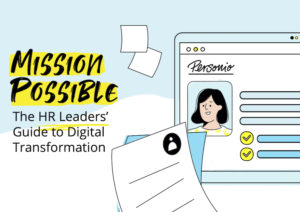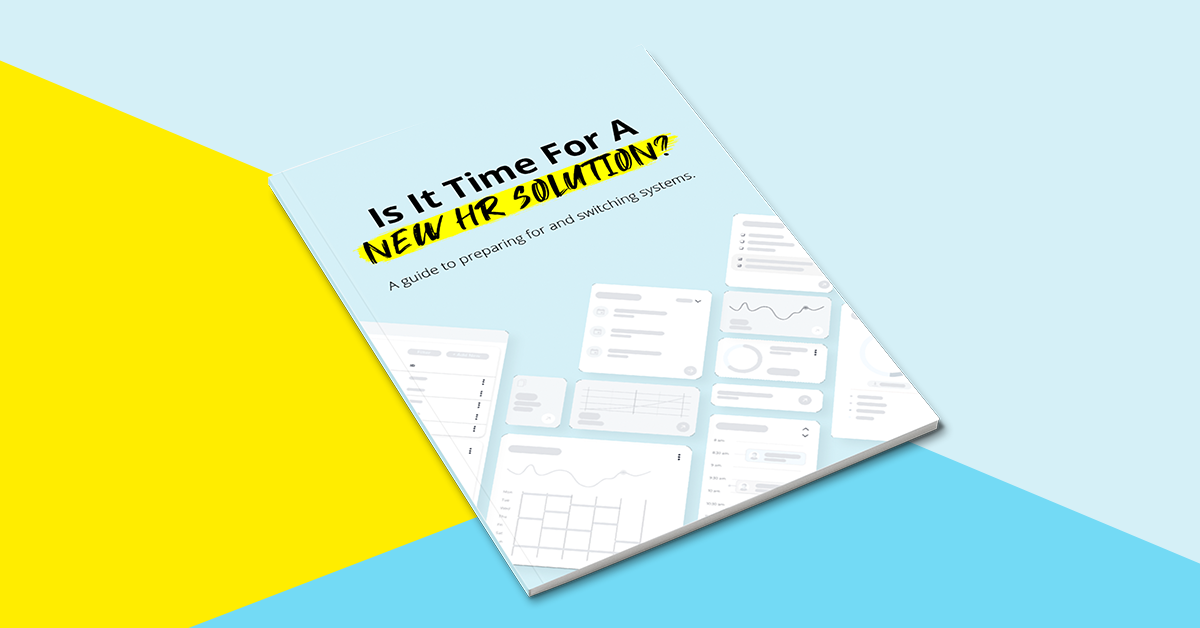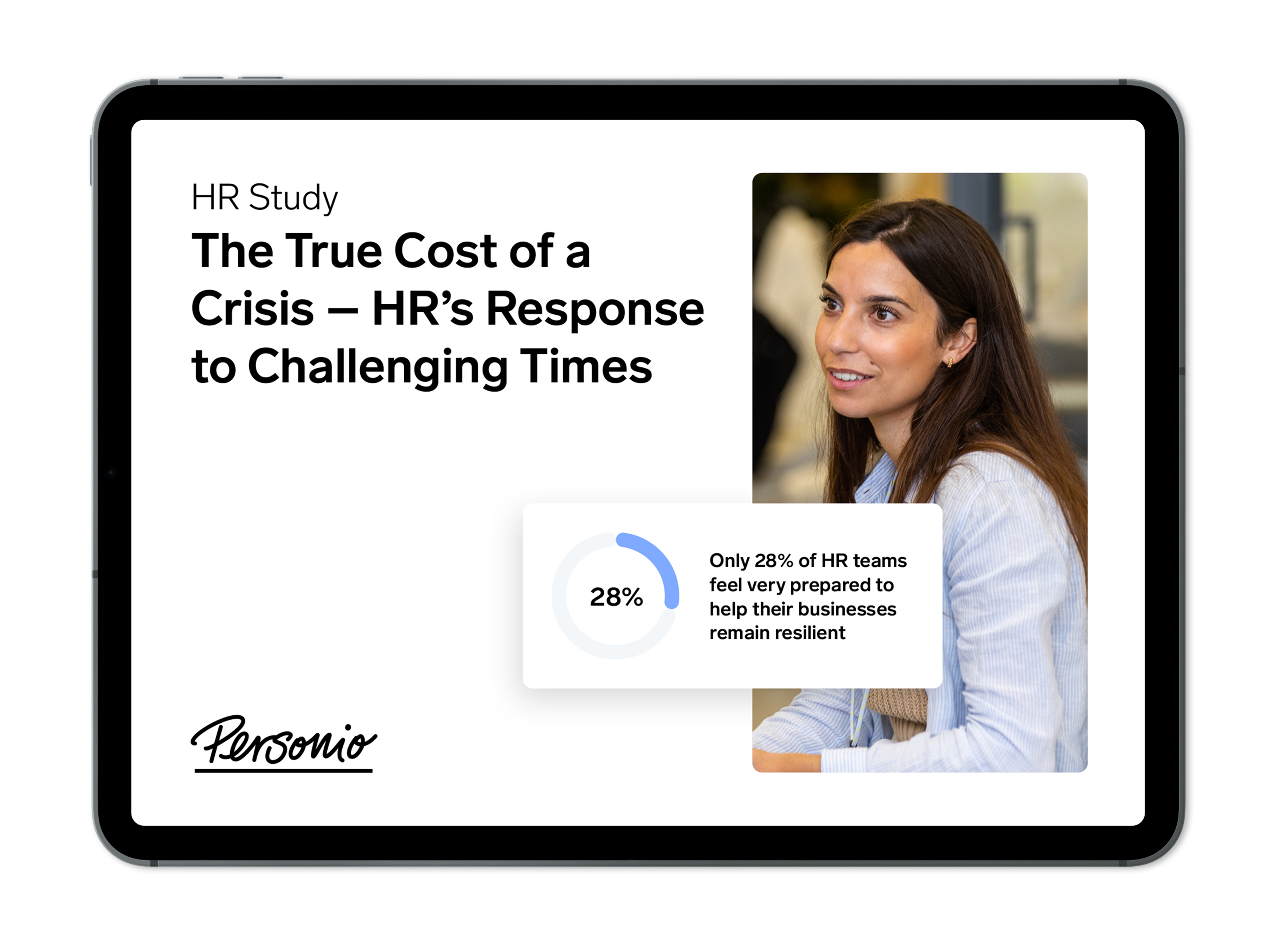16. March 2022
Digital Maturity Assessment: How Does Your HR Function Stack Up?

A digital maturity assessment can help determine exactly where your organization stands in a critical sense. That's because digital maturity can help unlock a lot of what makes your organization great. But, it all begins with an understanding of where things stand.
In this article, we’ll provide you with a definition of digital maturity and why it matters for HR, the four key dimensions of it (with both opportunity costs and benefits), along with a digital maturity assessment model that your organization can start using right away.
What goes into a proper switch of HR systems? Download our guide to find out.Contents
- 1What Is Digital Maturity?
- 2Do You Need A Digital Maturity Assessment?
- 3The Four Dimensions of Digital Maturity
- 4What Are The Four Levels Of Digital Maturity?
- 5Digital Maturity Assessment: Try These Questions!
- 6How Do You Ensure HR Excellence Through Digital Maturity?
- 7Can HR Software Help Your Digital Maturity?
What Is Digital Maturity?
Digital maturity refers to the level of technological adoption that your organization’s HR function has reached. Think of it as a combination of overall digitization, as well as how thoroughly your people processes and administrative work have become digitized.
More importantly, though, digital maturity is a competitive advantage. For many companies, a higher level of maturity corresponds to a higher level of operational excellence, business resilience, and more (we’ll build on this later on in this article).
So, it helps to think of digital maturity both as a present state and an opportunity. An opportunity to take your organization to the next level, by digitizing your people processes and administrative work to focus on strategic HR initiatives.
Do You Need A Digital Maturity Assessment?
For the simple fact that Covid-19 revealed what was already massively important, the urgent need for businesses to become resilient, as well as the overall importance and value of digital technologies that help facilitate better work.
After all, your HR department may believe that you’re digitized, but you may still have a long way to go. Especially when it comes to truly powering operational excellence, you may have developed blind spots that need to be addressed.
Download our latest HR study today to find out the future of post-pandemic work.Discover Personio: Boost Your Digital Maturity Instantly
Discover how HR software can help take your digital maturity to the next level, automating your core HR tasks and finding your team the time to be truly strategic. Click below for more.
Take The Next StepThe Four Dimensions of Digital Maturity
Digital maturity isn’t a monolith, it’s a spectrum. An organization can be at a variety of different stages, but within those stages, there are also a variety of dimensions of maturity.
Here are the four key dimensions that help form the basis of any digital maturity assessment:
1. Future-Ready Workforce
Through best practices in people operations, this facet of digital maturity provides for a positive and engaging candidate and employee experience.
It means having both the time and capacities to prepare employees and respond to events that dictate the future of how work is done.
A lack of this dimension can lead to a poor employer brand, high rates of turnover, or lower overall workforce productivity. Basically, it means having your people prepared for the future (and feeling prepared)!
2. Strategic Workforce Insights
This dimension of digital maturity is about deriving data from your people.
It means leveraging key workforce insights, as well as having them in the first place, to steer the overall business and shape strategy (based on that data).
If you lack these insights, it may result in blind decision-making and low management trust in HR. Overall, it means having the digital tools to derive real insights from top-line data.
3. Operational Excellence
If we think about it holistically, this dimension of digital maturity is all about execution.
It is about using digital technologies to facilitate the design and frictionless execution of core HR processes. Basically, it means leveraging digitization to help make your day-to-day work easier, more streamlined, with the added benefit of being able to focus on other strategic topics.
Without it, you risk data security issues, higher costs, and lower service quality.
4. Organizational Agility
Otherwise known as business resilience, your digital maturity can determine how quickly your organization can adapt to change, support growth, and remain agile with flexible processes and IT landscapes.
We can think of it as the way that digitization can be a key enabler in allowing an organization to change things on the fly, without issue, to respond to external challenges.
A lack of which can result in low levels of resilience and competitive risk overall.
Make Digital Maturity ‘Mission Possible!

How do you start digitizing your HR department? Or, rather, how do you know you’re digitizing the right way? Download our guide for all the answers.
Grab A CopyWhat Are The Four Levels Of Digital Maturity?
Now that we have more of a nuanced take on the topic, we can begin our digital maturity assessment proper. So, what are the four levels of maturity, and what does each entail? Here they are, as follows:
Manual – No employee self-service, incomplete or unreliable people data, mainly on-paper processes, and a fragmented IT landscape.
Partial – Partial self-service, low trust in data, partially-digitized processes, and software solutions in place (but not integrated).
Integrated – Existing software (with poor employee engagement), difficult-to-process people data, some digitized processes but not automated.
Advanced – Employees integrated with all HR processes, on-demand and real-time reporting, automated processes, a holistic software solution in place.
Many organizations will find themselves at the first stage, graduate to the second, and stay there. That’s because partial digital maturity can sometimes feel advanced, but it’s far from it.
The goal, for almost every HR function, should be to reach the advanced stage. But, how do you get a real read on where your maturity stands?
Digital Maturity Assessment: Try These Questions!
To gain a read of where your HR and organization stands, ask yourself the following questions:
Are all your employees fully integrated into your HR processes?
Is your employee data security completely guaranteed?
Are all your HR processes standardized, automated, and fully integrated across departments?
Do you have a fast, transparent, and smooth recruiting process?
Does your HR team define onboarding guidelines (but isn’t involved with operational tasks)?
Can you easily access cross-departmental HR data across the business?
Is your HR team given the time to be highly strategic and to partner with senior managers?
Do you have one centralized and state-of-the-art HR system in place?
Does your HR software grow with your business and adapt to structural changes?
Can you easily configure your HR software as needed?
Is there continuous innovation and development in your current HR software (product updates, etc.)?
If you answered yes to between 1-3 of these questions, then your organization may currently be sitting in the ‘manual’ stage.
If you answered yes to 4-7 answers, you are likely in the ‘partial’ stage.
If you answered yes to 8-10, then you can count yourself in the ‘integrated’ camp.
Lastly, if you answered yes to all 11 of these questions, then consider yourself ‘advanced’!
Even advanced teams may need to consider a switch. Download our guide today.
How Do You Ensure HR Excellence Through Digital Maturity?
When it all comes together, you can truly reap the benefits of each dimension of digital maturity, including:
Future-Ready Workforce – Integration of employees and candidates into HR and recruiting processes.
Strategic Workforce Insights – Easy, centralized access to accurate workforce insights.
Operational Excellence – Automated processes and effective task management.
Organizational Agility – High ability to configure boosts flexibility and therefore resilience.
Each has its own unique benefits, but if you fall in the ‘advanced’ camp of each, then your HR function truly has time to thrive.
Can HR Software Help Your Digital Maturity?
Definitely! After completing your digital maturity assessment, it helps to know that HR can play a key role in optimizing each of the dimensions listed above.
If you have HR software, you can not only build a foundation for operational excellence, but build people processes that prepare your teams for the future, derive data from their experiences, and keep your organization agile and resilient.
How? By digitizing your HR, you can automate your core HR tasks and make time for more strategy. Click the button below to learn more.

